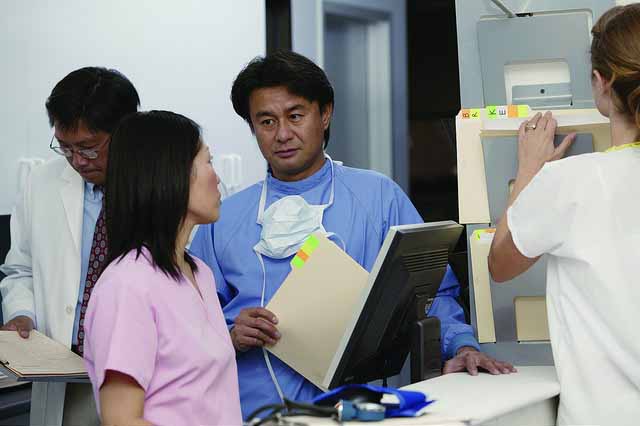
Delegating prescriptive authority to nonphysician practitioners (NPPs), such as nurse practitioners and physician assistants, can help physicians manage their workloads and budgets. But doing so requires vigilance to comply with state scope-of-practice laws and avoid costly billing mistakes.
TMA’s advocacy is guided by the principle that independent diagnosing and prescribing is the practice of medicine – and the purview of physicians alone, Vice President for Advocacy Dan Finch said at a virtual event. “Physicians can delegate, but must supervise, because ultimately they’re accountable for the delegated act,” he added.
This accountability extends to billing. Under certain circumstances, supervising physicians can bill NPP visits under their own National Provider Identifier (NPI) number for full payment, explained Carra Benson, TMA’s manager of practice management and reimbursement.
Under Medicare, these visits are known as “incident to” services because they are incidental to the physician’s diagnosis and treatment of an injury or illness.
To qualify, an NPP must see a patient for an existing problem and use a treatment plan developed by the physician in advance and under direct supervision, where a physician is present in the same office suite and available to intervene if needed. Should a new issue arise during such a visit, the physician must get involved; otherwise, the visit cannot be billed under the physician’s NPI number.
Similarly, if an NPP sees a patient under general supervision, where a physician is only available by phone, the visit must be billed under the NPP’s NPI number – not the physician’s.
A less common scenario is known as “shared splits,” Ms. Benson said. When a physician and an NPP each see a patient face-to-face in an inpatient, outpatient, or emergency department setting, the two visits may be billed together under the physician’s NPI number, with certain exceptions.
In all cases, NPPs must be employed by the supervising physician and registered with the Texas Medical Board as having delegated prescriptive authority.
Although not required, Ms. Benson encouraged supervising physicians to have their NPPs credentialed by individual payers. Doing so provides a safety net against lost revenue if an NPP visit billed under the physician’s NPI number is disqualified for any reason, she says.
These nuances can be tricky to navigate. “This is a complex thing, and there are going to be mistakes,” Austin attorney Julian Rivera said.
Mr. Rivera encouraged physicians to document any mistakes as well as any corrective actions enacted to address them. “When something like this happens, there is only one solution and there is only one opportunity – but it’s a big opportunity – and that is to prove compliance,” he said.
If a mistake is substantial, Mr. Rivera recommends hiring a lawyer who can help analyze the situation confidentially.
Emma Freer
Associate Editor
(512) 370-1383